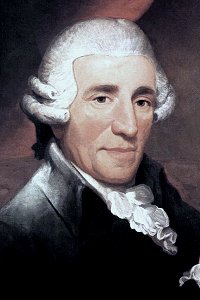Introduction

Words: Friedrich R. L. von Canitz, 1700 (Seele du musst munter werden). Translated from German to English by Henry J. Buckoll, 1836 or 1838. Thomas Arnold (1795–1842) is also said to have produced a translation in 1836.
Catherine Winkworth translated von Canitz’ lyrics as Come My Soul, Awake, ’Tis Morning, in her Lyra Germanica, 1855. Another translation appeared in the British Magazine, July 1838.
Music: Haydn arranged from Franz J. Haydn, 1791 (🔊 pdf nwc).
Alternate Tunes:
- Dawn (Goudimel) old French melody, harmony by Claude Goudimel, 1565 (🔊 pdf nwc)
- Lux Prima (Stainer) John Stainer, 1872 (🔊 pdf nwc)